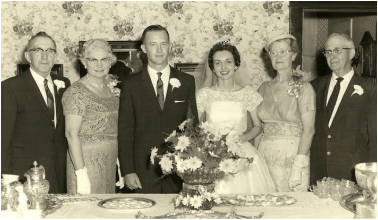|
"We teach best what we most need to learn." Richard Bach, Illusions. I guess that is the SHORT short version of why I'm doing this. I know it may puzzle people who know me that I am spending my free time on this gluten free thing. And before I got diagnosed with celiac, I would have thought so too. I remember a conversation with our pediatrician 9 years ago when talking with her about our older son's mild reflux issues. She mentioned celiac and I made a face and said something enlightened like, "Isn't that pretty weird and rare?" She said no, not that rare (she ignored the "weird" comment), but because we didn't have any other indications that he might have gluten issues, we didn't pursue testing. [My son, now 10, and I are not biologically related and he has no symptoms of celiac, FYI.] And is my way, once I got diagnosed, I began a steep learning curve on how to live gluten free and about the disease itself. What I found is that it's a way bigger deal than most people think it is, and it looks like it's only going to get bigger. (More about that in a minute if you want a deeper dive.) But what's the big deal anyway? So you have an upset stomach, so what? Well, for one, "upset stomach" doesn't begin to approach the severity and host of symptoms that some people experience. For two, untreated celiac can open the door to a whole host of conditions and illnesses, including cancer, which can make your life miserable and shorter. That's the big deal. If you have celiac, go gluten free, feel better, live longer. If you have any reason to suspect you might have celiac, talk to your doctor and ask to have the antibody tests for celiac that may indicate a need for further testing. Go here to see a symptoms checklist. Before I got the celiac diagnosis, I was interested in helping people adopt strategies that would increase their general level of happiness. Since diagnosis, I've met and interacted with lots of people with celiac in person and in the cyberworld who could really use some techniques to get happier. This is supported by research that indicates that people with celiac, especially women, are more likely to be depressed and anxious. So that's the point of my quest to help others be happy, healthy and gluten free. Keep reading if you want the numbers. The number of people needing to live gluten-free is exploding. 1 in 133 Americans are diagnosed with celiac, many more are gluten-intolerant, their caretakers add to the ranks of people who assist with their meals, and many more people will be diagnosed in the near future as information about celiac and gluten intolerance increases testing and diagnosis. In the United States, celiac disease is a genetic disease that affects at least 3 million people. That's 1 in 133 (for comparison, that's more than twice as many people as those who have Type I diabetes). But the number more than doubles if you have any symptoms (and there are LOTS of symptoms that you wouldn't necessarily connect to a GI issue), and the incidence of celiac is 6 times higher if you have a relative that has it. And what's more, researchers studying a population of both symptomatic and non-symptomatic people found that 60% of children and 41% of adults diagnosed during the study were asymptomatic, meaning that they would have had no physical reason to seek out testing. (Source: A multi-center study on the sero-prevalence of celiac disease in the United States among both at risk and not at risk groups. Fasano et. al., Archives of Internal Medicine. February 2003.) If you add in the number of people who are gluten intolerant (which means that they have symptoms but haven't tested positive for celiac) and the number goes up from there. What's more, the time it takes for a symptomatic person to be diagnosed with celiac disease in the US is four years, increasing that person's risk of developing other autoimmune disorders, neurological problems, osteoporosis and even cancer. (Source: Characteristics of adult celiac disease in the USA: results of a national survey. Green, P.H. et.al. American Journal of Gastroenterology, 2001, 2006.) And what about the Happy part of my equation? There are numerous studies that indicate that people, especially women, with celiac are more likely to be depressed and anxious than the general population even after they have gone gluten free. (Source: Future issue of Journal of Chronic Illness. Josh Smyth.; World J Gastroenterol. 2010 Jun 14;16(22):2780-7. Häuser W,; Janke KH,; Klump B,; Gregor M,; Hinz A.) Here's to your good health and happiness!  This is my mom and dad and my grandparents in 1959. Since celiac is genetic, at least one person in this picture also carried the gene and may have suffered with a whole host of related symptoms for years. Fortunately awareness is on the rise, testing is getting better, and I'm confident that diagnosis and the time it takes to get a diagnosis will improve drastically in the years to come. Comments are closed.
|
Archives
January 2024
|

 RSS Feed
RSS Feed
